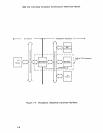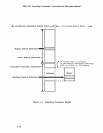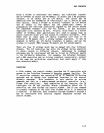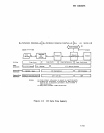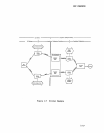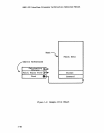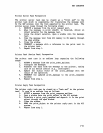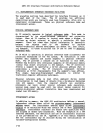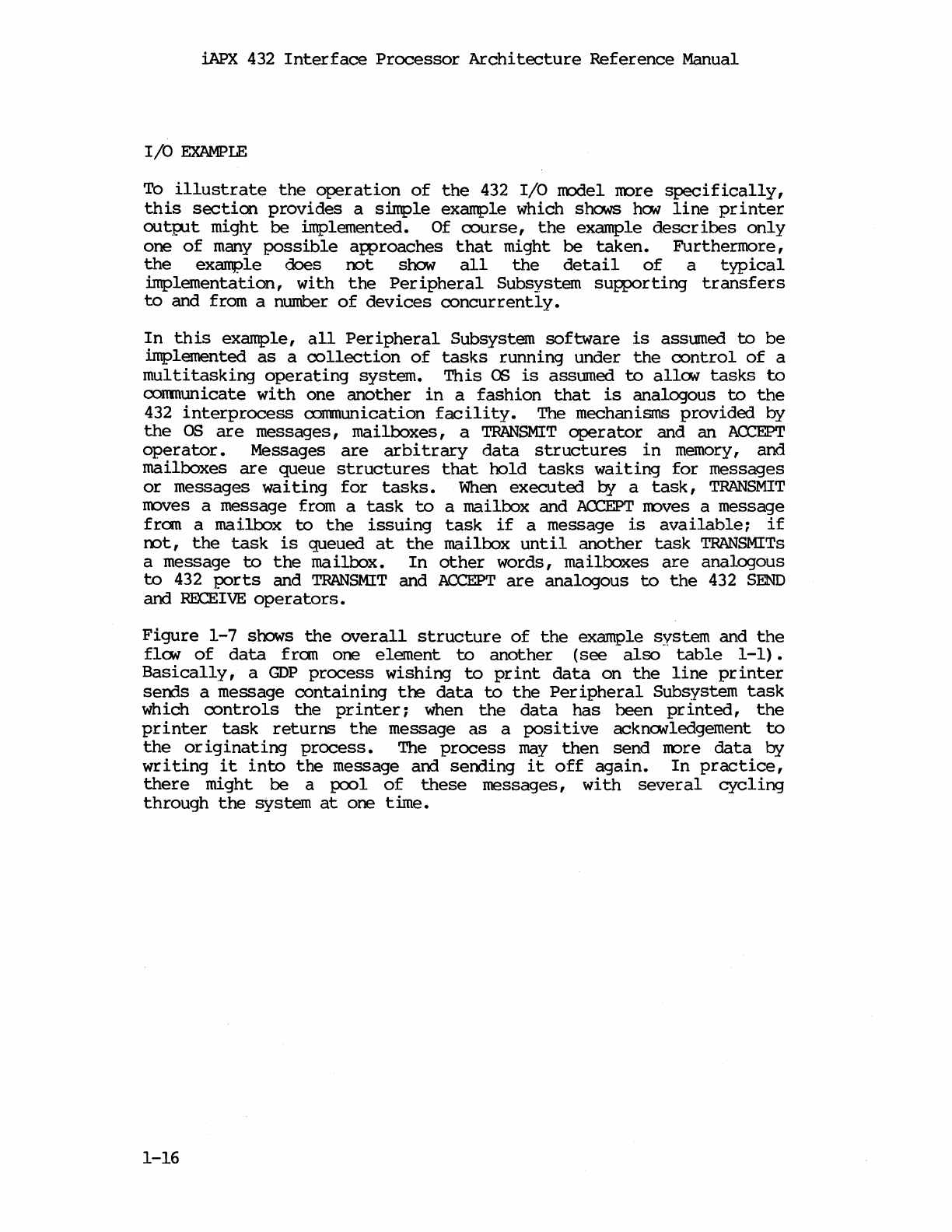
iAPx 432
Interface
Processor
Architecture
Reference
Manual
I/O
EXAMPLE
To
illustrate
the
operation
of
the
432
I/O
model more
specifically,
this
section
provides
a
simple
example which shows
how
line
printer
output
might
be implemented. Of
course,
the
example
describes
only
one
of
many
possible
awroaches
that
might
be
taken.
Furthermore,
the
example does
not
show
all
the
detail
of
a
typical
implementation,
with
the
Peripheral
Subsystem
supporting
transfers
to
and from a number
of
devices
concurrently.
In
this
example,
all
Peripheral
Subsystem
software
is
assumed
to
be
implemented
as
a
collection
of
tasks
running
under
the
control
of
a
multitasking
operating
system.
This
OS
is
assumed
to
allow
tasks
to
cornnunicate
with
one
another
in
a
fashion
that
is
analogous
to
the
432
interprocess
corrmunication
facility.
The mechanisms
provided
by
the
OS
are
messages,
mailboxes,
a
TRANSMIT
operator
and
an
ACCEPT
operator.
Messages
are
arbitrary
data
structures
in
memory, and
mailboxes
are
queue
structures
that
hold
tasks
waiting
for
messages
or
messages
waiting
for
tasks.
When
executed
by
a
task,
TRANSMIT
moves a message from a
task
to
a
mailbox
and
ACCEPT
moves a message
fran
a
mailbox
to
the
issuing
task
if
a message
is
available;
if
not,
the
task
is
queued
at
the
mailbox
until
another
task
TRANSMITs
a message
to
the
mailbox.
In
other
words,
mailboxes
are
analogous
to
432
ports
and
TRANSMIT
and
ACCEPT
are
analogous
to
the
432
SEND
and
RECEIVE
operators.
Figure
1-7
shows
the
overall
structure
of
the
example
system
and
the
flON
of
data
fran
one
element
to
another
(see
also
table
1-1).
Basically,
a
GOP
process
wishing
to
pr
int
data
on
the
line
pr
inter
sends
a message
containing
the
data
to
the
Peripheral
Subsystem
task
which
controls
the
printer;
when
the
data
has
been
printed,
the
printer
task
returns
the
message
as
a
positive
acknowledgement
to
the
originating
process.
The
process
may
then
send more
data
by
writing
it
into
the
message and
sending
it
off
again.
In
practice,
there
might
be
a
pool
of
these
messages,
with
several
cycling
through
the
system
at
one
tbne.
1-16



